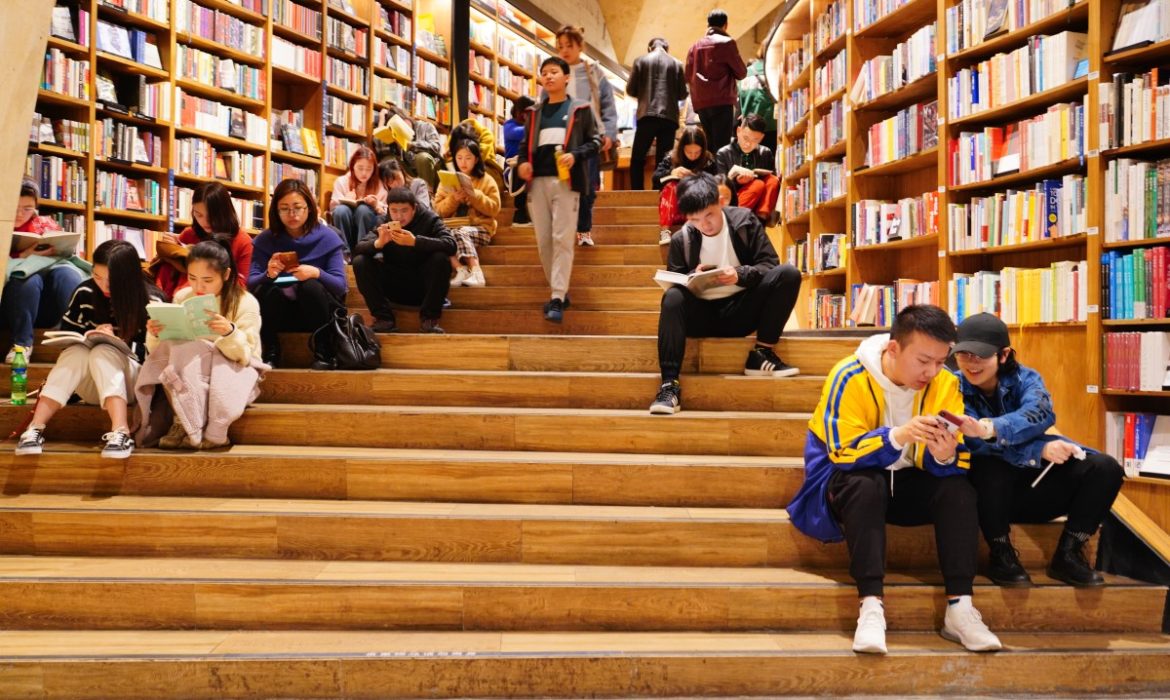China’s stores remain closed, as sales dropped 90 percent. Thus, private bookstores are struggling to survive.
China has over 70,000 brick-and-mortar bookstores. Nevertheless, they are among numerous small and medium-sized enterprises that are struggling because of a lack of customers.
The virus is another struggle for the industry that was already under pressure from online rivals. Also, another blow is a growing trend of reading books on electronic devices.
There was a one-hour live stream in the eastern Chinese city of Hangzhou. During the live stream, two members of staff circled the children’s section of an empty bookstore flipping through illustrated books for dozens of online viewers.
The staff’s female member who was holding the camera, at one point, picked up a picture book by American singer-songwriter Bob Dylan called Forever Young. Holding the book, she said that she loves that book and highly recommends it. Then she suggested to fellow watchers, in case they were interested, that he adds them to their reader’s group on WeChat.
Many of China’s 70,000 bricks-and-mortar bookstores have taken a hit from a lack of customers, amid the coronavirus outbreak. Other numerous small and medium-sized enterprises have taken a hit from lack of customers because many cities have closed shops and public facilities.
Moreover, physical book shops were already under pressure from online rivals. There is a growing trend of reading books on electronic devices, for example, Amazon’s Kindle.
Most of them are unsure when they will be able to reopen. Thus, some of them turned to live streams, crowdfunding, flash sales, and membership cards on social media.
Bookstores in Struggle
Originally from Beijing, Owspace is operating four stores in China. Nevertheless, only one store is open for business in a shopping center on the eastern side of the capital city. Even though daily traffic is down to around 10 percent, sales are dropping by 90 percent.

Wu Yanping is a manager at Owspace. He says that even if all of their bookstores will reopen, their business will be like what it is now, they still won’t be able to stay in business after two or three months. Yanping also added that around 40 percent of Owspace’s revenue comes from book sales.
Owspace’s most significant store is the Hangzhou store. It is 2,800 square meters (31,100 square ft).
It is the primary revenue source for the Owspace. Nevertheless, it still has to confirm a date when it will reopen even that the city slowly goes back to normal.
Hangzhou is the capital of Zhejiang province. For Wednesday, it had the fourth-largest number of confirmed cases. It has currently abandoned its approval system, where companies were able to apply to resume operations. Instead, it has adopted a negative list of businesses that need to remain closed, including cinemas, hair salons, and bookstores.
In early February, the recent survey covered more than 1,000 physical bookstores across china. It revealed that more than 90 percent had no revenues at all.
Most small and medium-sized bookstores have no revenues outside book sales, so they are in a huge struggle.














